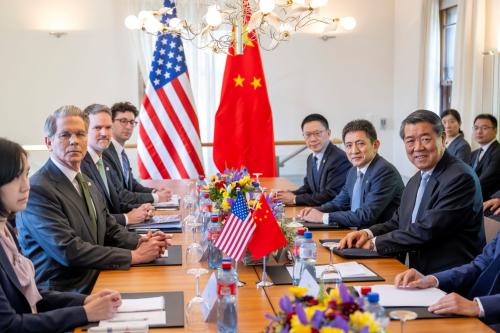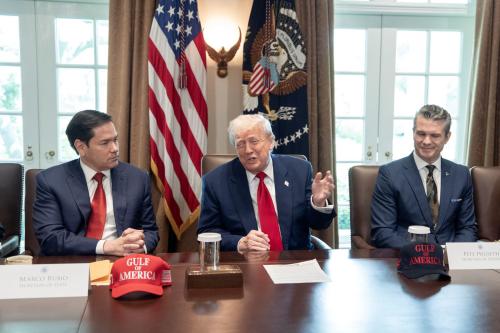Editor’s Note: Mireya Solís appeared on Wisconsin Public Radio’s Joy Cardin Show to discuss the Trans-Pacific Partnership (TPP), and whether this ambitious trade initiative is good or bad for the United States. Below is an excerpt from the interview.
Mireya Solís: TPP is certainly a big deal. It is the most ambitious trade initiative pursued by the Obama Administration, one that will have large ramifications for overall trade policy and the direction of the world trading system.
So I think what is important for your listeners to understand is that TPP stands out for many different reasons. We have hundreds of trade agreements that have been notified through the World Trade Organization, but none has come close to the level of ambition of the Trans-Pacific Partnership. Currently, it comprises 12 countries that represent close to 40 percent of world GDP, as you were commenting before.
But I think what’s really striking about the Trans-Pacific Partnership is that first of all it aims to create an Asia-Pacific platform for integration. So we’re trying to avoid a world of divided self-contained regions. The world actually has crisscrossing economic relations and Asia is the most dynamic region in the world and therefore the United States has a core interest in being part and parcel of that growth dynamo. So that’s one first reason why the TPP stands out.
But second, it comes with an unprecedented level of ambition because other trade agreements in the past have been much easier to negotiate because governments agreed to set aside the sensitive sectors and you then end up negotiating trade agreements that are actually of low quality. The mantra of the Trans-Pacific Partnership has been “No Exclusions.” We don’t know if this will actually be upheld at the end of the negotiations, but most likely the liberalization ratio will be incredibly high in the order of 98 percent or so.
And finally, the Trans-Pacific Partnership stands out because of the very ambitious agenda regarding the non-tariff barriers. We should all know that tariffs are old news. They have been brought down because of the successful efforts of the World Trade Organization, and now we’re dealing in a much more complex world where the barriers that hinder market access are so-called non-tariff barriers, which means that all kinds of regulations, for example, that are put in place to try to hamper access by foreign products or foreign companies are there, but they’re hard to quantify and hard to measure, and sometimes it’s not clear that they’re there to satisfy or to meet genuine, social public purposes or they’re there to hinder the access by foreign companies and foreign products.
Joy Cardin: That’s very ambitious. If we could boil it down, proponents of the Trans-Pacific Partnership would say that the whole point – the goal of this is to what?
The Brookings Institution is committed to quality, independence, and impact.
We are supported by a diverse array of funders. In line with our values and policies, each Brookings publication represents the sole views of its author(s).



Commentary
Would the Proposed Trans-Pacific Partnership be Good or Bad for America?
November 6, 2013